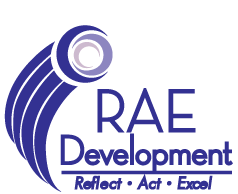Professional Coaching
What is “Coaching?”
“Coaching concentrates on where clients are today and what they are willing to do to get where they want to be tomorrow.”
– 1999, International Coach Federation.
 Coaching is an ongoing partnership that helps clients produce fulfilling results in their personal and professional lives. Through the process of coaching, clients deepen their learning, improvve their performance, and enhance their quality of life.
Coaching is an ongoing partnership that helps clients produce fulfilling results in their personal and professional lives. Through the process of coaching, clients deepen their learning, improvve their performance, and enhance their quality of life.
In each meeting, the client chooses the focus of the conversation, while the coach listens and contributes observations and questions. This interaction creates clarity and moves the client into action. Coaching accelerates the client’s progress by providing greater focus and awareness of choice.
We view coaching as the vehicle to help individuals capitalize on their strengths, meet their fullest potential, achieve desired results, and enjoy a more fulfilling life. Through our unique coaching programs, client and coach determine vision, objectives, and goals; participate in relevant assessments, create development plans, and receive ongoing tools, support and accountability to ensure success.

Who We Coach:
- Newly promoted managers, directors and Vice Presidents to assure success in their new roles
- Successful executives who want to take their leadership to the next level or want to develop a stronger executive presence
- High potential employees. We create career development plans to help these employees map their long-terms careers and advance to the next level
- Individuals with strong technical competencies who need to develop stronger communication and interpersonal skills
- Individuals who are focusing on career management and desiring to live a more fulfilling and effective life
Step 1 - Discovery
Outcome: Self-awareness and creating coaching alliance
- Client completes a discovery questionnaire to help the coach get to know him/her and to begin a valuable reflection process
- For Professional Coaching – Kick off meeting with Coachee and his/her manager to discuss possible coaching goals and to clarify confidentiality issues
- 2-hour session to set the foundation for the coaching relationship. The discovery session includes values clarification, work/life Balance activity, coaching alliance design
- Next session may include r elevant assessments such as Thomas Kilmann (conflict styles), Myers-Briggs Type Indicator (communication styles assessment), Career Design Guide and/or Strength Deployments Inventory (communication styles assessment)
- The client may participate in 360 ˚ Feedback (Interview or Automated Survey)
Step 2 - Action Planning
Outcome: Determine and create 1-3 specific coaching goals including desired specific outcomes , and evidence of success – observable behavior changes that will occur within a specified time frame
- 2-hour session to create a detailed action plan based on the outcomes of the Prioritization step. This plan serves as the guide for the coaching agenda and includes measurable goals and milestones to support the client’s goals
- Meeting with client’s manager to get alignment on goals and necessary support (this does not pertain to individual career and life coaching clients).
- Complete development plan consisting of specific, measurable, attainable, realistic, and time-bound goals
Step 3 - Ongoing Coaching for Growth and Positive Change
Outcome: Achievement of coaching goals and modifying goals as needed
- Coaching sessions are usually scheduled weekly as three 40 minute sessions per month or four 1 hour sessions per month (totaling 2 or 4 hours per month). The focus of the sessions include giving and receiving continuous feedback, tracking goal progress, modifying goals, and experimentation with new skills, tools, and behaviors
- Coaching sessions are facilitated either by phone or face-to-face. Each coaching session usually concludes with action items such as assignments or inquiries in order to deepen the client’s learning. Experimentation with new skills, tools, and behaviors
Step 4 - Monitoring & Measuring
Outcome: Progress and improvements tracked at 30, 60, 90 day intervals; 6 months; and up to 1 year
- Relevant assessments and interviews may be repeated to track progress
- Modification of action plan at 30,60,90 day intervals if necessary
Executive and Professional Development Coaching
We partner with successful managers, directors, vice presidents, and CEOs to produce performance results. Through coaching, individuals deepen their learning, improve performance, and enhance overall effectiveness and satisfaction. Coaching creates clarity and moves the client into action. Coaching accelerates the client’s progress by providing greater focus and choice awareness.
The International Coaching Federation reports that Coaching works for several reasons:
- Synergy between the coach and client creates momentum
- Better goals are set — ones that naturally pull the client toward the goal because they are truly moving the client towards the life they want versus the life others tell them they “should live”
- The client develops new skills, and these skills translate into more success
Specific focus areas include:
- Gain clear feedback from others in the organization
- Improve communication effectiveness such as verbal and listening ability. Clients learn how to adjust communicate style and approach with different people at varying levels
- Effective delegation while gaining commitment and involvement from direct reports and peers
- Work life balance
- Set clear and realistic expectations
- Become an effective internal coach
- Facilitate performance reviews
- Deal with difficult employees
- Improve the quality of important relationships at work
- Stress Management
- Time Management
Return on Investment
Executive coaching delivers an average return on investment of 5.7 times the initial investment in a typical coaching assignment – more than $100,000.
– January 4, 2001, Manchester, Inc. survey of 100 executives from Fortune 1000 companies.
Career Coaching
Research shows that career development is among the top drivers for employee retention and satisfaction. Our career coaching includes assisting managers in coaching their employees to develop their careers, helping managers strategize their personal career development, and working with individuals to help them assess, manage, and take charge of their career development.
The RAE Development career coaching model consists of four key steps including Discovery, Action Planning, Coaching for Growth and Positive Change, and Measurement and Monitoring

